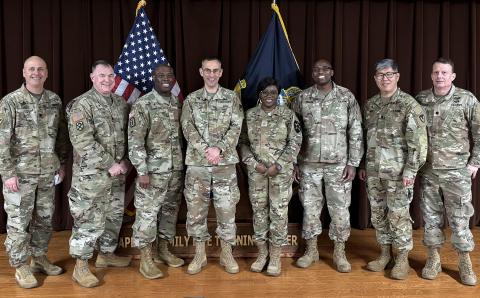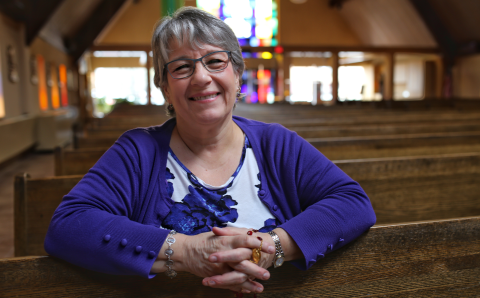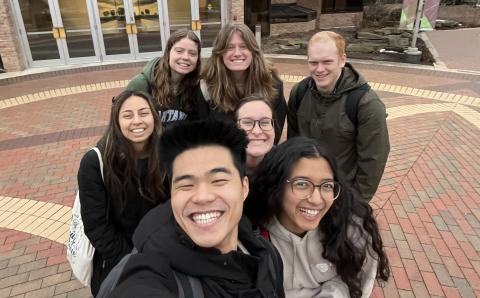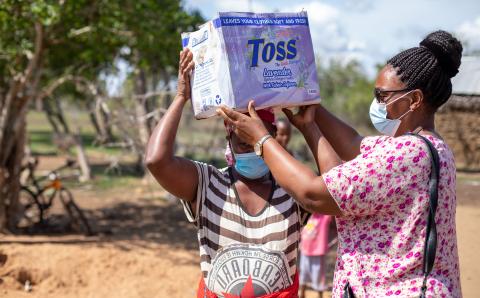I was alerted to online debates about the “sin of empathy” after publishing the editorial “Empathy” (March 2025). That prompted me to write the Big Question answer on page 10. My focus there is to remind us that the Bible emphasizes the danger of lacking empathy and compassion, not having too much of them. This editorial is about empathy’s relationship to justice.
Empathy should not prevent us from enacting justice. Empathy for victims of injustice should drive us to seek justice for them, while empathy for all God’s image bearers should restrain our justice-seeking from crossing into vengeance or even cruelty.
First, we naturally have more empathy for those who are suffering than for those who are not. For example, it is fitting to have more empathy for victims of bullying than for their bullies. This empathy should motivate us to seek justice, to protect and stand by the victims.
The Bible shows us a God who cares about and fights for the poor and the oppressed. God freed the enslaved and oppressed Israelites from the mighty empire of Egypt. God later gave the Israelites many laws to protect the vulnerable among them, especially the poor, the widows, and even the foreigners. The nation of Israel was to protect foreigners who lived among them: “When a foreigner resides among you in your land, do not mistreat them. The foreigner residing among you must be treated as your native-born. Love them as yourself, for you were foreigners in Egypt. I am the LORD your God” (Lev. 19:33-34).
Israel’s kings were expected to defend the oppressed: “May (the king) defend the afflicted among the people and save the children of the needy; may he crush the oppressor” (Ps. 72:4). God’s prophets often rebuked Israel for failing to care for the vulnerable. For example, Zechariah 7:9-10: “This is what the LORD Almighty said: ‘Administer true justice; show mercy and compassion to one another. Do not oppress the widow or the fatherless, the foreigner or the poor. Do not plot evil against each other.’”
However, bullies too are made in God’s image, so we also should have some empathy and compassion for them. However, that empathy should not prevent us from resisting bullies and bringing them to justice. Empathy should restrain our pursuit of justice from crossing into vengeance. We do all we can to stand up to bullies and protect the vulnerable, but we should not kick the bullies when they are already down, so to speak. Otherwise, we end up becoming bullies ourselves. Scripture warns us not to seek vengeance: “Do not seek revenge or bear a grudge against anyone among your people, but love your neighbor as yourself. I am the LORD” (Lev. 19:18).
Empathy also helps us to be more curious and less judgmental. It should motivate us, for example, to be curious about the victims. What is the history of the relationship between the bullies and them? What makes the victims a target? Are there ways we can help them to mitigate the bullying or even change the nature of the relationship? Similarly, we can be curious about the bullies too. Many studies have shown that hurt people hurt others. Bullies often were themselves bullied. Scripture calls us to love our enemies and not repay evil with evil, but with blessing (Luke 6:27-28; 1 Pet. 3:9).
This is a hard calling, and we often have failed. But with the Holy Spirit’s help, we can be the empathic, justice-seeking people God calls us to be.
About the Author
Shiao Chong is the former editor-in-chief of The Banner. He served as editor from 2016 to 2025. He attends Fellowship Christian Reformed Church in Toronto, Ont.
Shiao Chong es el redactor jefe de The Banner. El asiste a Iglesia Comunidad Cristiana Reformada en Toronto, Ont.
시아오 총은 더 배너 (The Banner)의 편집장이다. 온타리오 주 토론토의 펠로우쉽 CRC에 출석한다.
You can follow him @shiaochong (Twitter) and @3dchristianity (Facebook).









